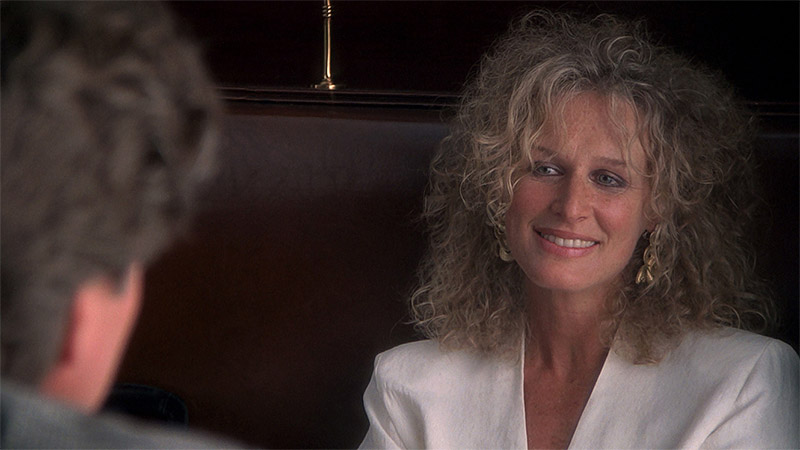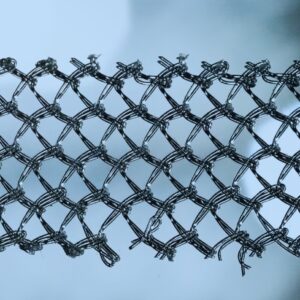
The Bloody Catharsis of Femme Revenge
Seeking Out Stories of Women Who are Finished Rising Above
In the night, there will be a sound like a beating heart. It will seem to be coming from the space just below your bedroom ceiling, but it will turn out to be coming from you. It will turn out that your hands are in fists, that your back cracks when you roll over onto your side and keeps cracking as you lie there, releasing pockets of air and spinal fluid into the night. There is only one thought, flashing across the ticker tape of your mind on repeat. The thought is, simply: no. By this, you know, the thought means: this is not right, this is not just, this is fucked up. This can’t be.
But it can be. It is. He really did flirt with you, fuck you, rape you, leave you. His hand really did graze your breast as you leaned over the cheese dip, he really did tell you to shut up, that you were being hysterical, that you were wrong. Or maybe he told you to trust him, that he was down, a feminist, on your side, and then turned around and did not believe you. Maybe he stayed silent, looked up, looked away.
You don’t want to live in a world where this thing that cannot be is, so you have to do something to change the world. That’s where the knife comes in, or the set of keys, and the dream of a gash in the paint that goes straight down to the metal, the fire, the vision of a burning house and you in silhouette as you walk away from it. Let it motherfucking burn, you think. If you have to burn yourself down in order to also burn him down, you will do it.
*
Somewhere around the beginning of October of this godforsaken year, I began to crave stories in which women and femmes got pissed off—got enraged. I was enraged, I discovered, and had been for a long time. And I was not alone. “We are seething at how long we have been ignored, seething for the ones who were long ago punished for telling the truth, seething for being told all of our lives that we have no right to seethe,” Lindy West recently wrote in the Times.
So I began to crave stories in which women and femmes were enraged, but more than this, I began to crave stories of revenge. Specifically stories in which women get revenge; specifically on men. Stories in which men were made to suffer in the same ways women and femmes have been suffering for all of time. It was no longer enough to be the bigger person. It was no longer enough to rise above. It was time to act.
I started in the usual places. My friend, the writer and dark pop culture queen Sarah Marshall, put her finger on the the year of my birth, 1987, and told me to start there. I started with Fatal Attraction, and it was good. It just felt good on my eyeballs. Glenn Close’s hair is fantastic, her shoulder-padded blazers are fantastic, her meat-packing district apartment is fantastic. Her mind and its capacity for torture is fantastic. The audio tape she makes Michael Douglas, listing the ways in which he is a profoundly selfish piece of shit, is fantastic: a bomb that explodes in his mind and his life, rocking the image he holds of himself—the good family man, loving husband, father to one gender-ambiguous child and one (soon-to-be-deceased) rabbit.
 Glenn Close in Fatal Attraction.
Glenn Close in Fatal Attraction.
Ditto Swimfan (2002), which follows a similar formula—decent guy Jesse Bradford makes one lousy mistake, and now he has to defend his future and true love from the assault of crazy violent femininity. Erika Christensen shares Close’s kinky blond hair, while the films’ good wives are both shiny brunettes—boring, hapless, and true believers in the decency of their philandering nice guys. The movies do not have Close or Christensen’s back. These movies do not think femme rage is fantastic. The movie thinks they are crazy, over-reacting, monsters. The movies want us to forget the weekend Douglas spent fucking Close, holding her hand and eating her pasta and drinking her wine, the night Bradford spent mesmerized by Christensen’s body in a diner booth and then a swimming pool. But I have not forgotten. To dismiss Close and Christensen as ill is to miss out on their particular lesson. Revenge comes from the combustion of injury and rage. The injury is personal and particular, the rage global; the specific injury activates the history—the accumulation of every hurt of the past comes rushing back.
*
Next, I tried Double Jeopardy (1999) with Ashley Judd and Enough (2002) with Jennifer Lopez. Both feature women who have been wronged by slick and cunning men, men who look to the outside world like everything a man should be, but who on the inside are writhing with fear, eaten alive by insecurity. In both, the motivation for revenge is sheer survival—it is kill or be killed. “It’s too late,” a lawyer tells Jennifer Lopez, when she finally reaches out for help. “You wasted all your opportunities to be believed. Now you’re on your own.”
My favorite part is when the narrative shifts, and the woman becomes the aggressor. She starts wearing soft shoes and black hoodies, cuts her hair short and learns to track a man’s movements with her eyes closed, just by the sound of his voice. There is an extended scene in Enough, by far the more satisfying of the two, in which Jennifer Lopez breaks into the home of her abusive husband and readies it for the fight—this time on her own terms. She has purchased a device that will block his cell phone signal should he try to call for help. She uses a metal detector to discover and relocate all of his handguns. She removes his knives, his razors, his scissors. She has thought of everything. She is prepared—even as her trainer tells her, for the impossible.
The American remake of The Girl With the Dragon Tattoo (2011) scratches a similar itch. Rooney Mara’s Lisbeth is manipulated and sexually assaulted by a lumpy low-level government bureaucrat who controls her money. Then he brutally rapes her. Her revenge is perfection. She plans it carefully—purchasing a tazer, a bag with a camera lens for a button, a tattoo gun. She subdues him, chains him to the bad, rapes him. She tattoos RAPIST PIG on his chest in huge block letters. Later, when she appears behind him in an elevator, he whimpers and cowers in fear.
 Rooney Mara in The Girl with the Dragon Tattoo.
Rooney Mara in The Girl with the Dragon Tattoo.
But these stories did not perhaps go far enough. It was cool that these women got revenge on the specific men who had wronged them, but I was hoping for a woman who got revenge on men in general, or upon even the first asshole that happened to hop across her path. Also, these enraged women had objective justification on their sides. Judd and Lopez’s rage was explicable—they had kids, and their rage was in part a lioness forced to protect her cubs; Mara had been raped. I have nothing so noble to protect as a small towheaded child; my own assaults were not black and white brutality. I have only my own body, my intelligence, my time, my future, and the work I might one day produce.
*
“Why are you doing this?” Kiefer Sutherland asks Reese Witherspoon in the crackling B-movie Freeway (1996) as she holds a gun to his head. She doesn’t even pause to think before firing back, “Because I’m pissed off and the whole world owes me.” And then she pulls the trigger.
Revenge is the domain of the underdog and the ordinarily powerless. In Freeway, Witherspoon plays a lost girl child, an invisible person, a sexually abused child of a sex worker and a drug addict. In a realist universe, she is doomed. But in the universe of the revenge movie, she is not. She cuffs her social worker to a metal bedframe and hits the road, only to be picked up by a murderous child therapist (Sutherland) who she kills before he can rape and murder her. She is hard. She is resilient. Even in prison, she laughs. At the end of the movie, she emerges, bloody and victorious, and lights a cigarette. She is harmed, of course, but she is not broken.
Part of what is so soothing about revenge stories is that the universe of revenge is heightened. It can drive you crazy to sit in a room where everyone is typing as if nothing has happened, when inside you know everything is burning. In revenge movies, the outside world burns too.
In The First Wives Club (1996) Diane Keaton, Goldie Hawn, and Bette Midler are middle-aged women cast off by their husbands for the newer model. They need to do something to distinguish the world of their revenge from the one of their hurt—hence the matching white suits and the singing. And don’t be fooled by the jovial sheen of Nine to Five (1980)—this is a story of femme revenge writ large, not just against one chauvinistic and demeaning boss, but the whole system that links patriarchy and capitalism, labor and cash. Check out the lyrics to the movie’s jaunty theme song:
Workin’ 9 to 5, what a way to make a livin’
Barely gettin’ by, it’s all takin’ and no givin’
They just use your mind and they never give you credit
It’s enough to drive you crazy if you let it . . .
They let you dream just to watch ’em shatter
You’re just a step on the boss-man’s ladder
But you got dreams he’ll never take away
You’re in the same boat with a lotta your friends
Waitin’ for the day your ship’ll come in
An’ the tide’s gonna turn and it’s all gonna roll your way
Working together, Dolly Parton, Jane Fonda, and Lily Tomlin do make the tide go their way. While they keep their boss chained up in a dog harness suspended from the ceiling, they institute sweeping feminist reform in the office—flexible hours, free childcare, and equal pay for women.
The ultimate dream of the revenge story is: you were right. The ultimate revenge is the lifting of the femme worldview into the dominant worldview. The ultimate revenge is making the other place, in which revenge is possible, into this place. We want revenge in this world, not that one. Most of the changes they put into effect in Nine to Five survive, because a male superior decides they increase productivity, which increases the bottom line. But equal pay doesn’t. “Of course we’ve got to get rid of that one,” says the big boss to the man they have successfully held captive for months. Breathlessly, he agrees.
 Jane Fonda, Lily Tomlin, and Dolly Parton in Nine to Five
Jane Fonda, Lily Tomlin, and Dolly Parton in Nine to Five
In John Cheever’s story “The Five-Forty-Eight,” which I listened to Mary Gaitskill read over my airwaves on a dark drive home, we get pretty close. A woman stalks and confronts a man who slept with her and then got her fired for no real reason—he just didn’t want to have to see her face around the office anymore.
With a pulled gun, the woman forces the man off a commuter train.
“Oh, I’m better than you, I’m better than you, and I shouldn’t waste my time or spoil my life like this,” she says.
“Put your face in the dirt. Put your face in the dirt! Do what I say. Put your face in the dirt.”
He fell forward in the filth. The coal skinned his face. He stretched out on the ground, weeping. “Now I feel better,” she said. “Now I can wash my hands of you, I can wash my hands of all this, because you see there is some kindness, some saneness in me that I can find again and use. I can wash my hands.” Then he heard her footsteps go away from him, over the rubble. He heard the clearer and more distant sound they made on the hard surface of the platform. He heard them diminish.
*
Revenge is the place the fracturing mind goes when it is trying to stay whole. That is the paradox of it, because revenge often means doing—even justified and righteous things—from which it is very unlikely you will return whole.
Hard Candy (2005) tests this theory by lingering longer and in greater dimension in the revenge mind. A baby Ellen Page meets a handsome older man online and then for a coffee in a suburban coffee shop. They go back to his house, ostensibly to listen to records, but Page has come prepared. Her date is a known pedophile and possible girl child murderer. She roofies his drink, ties him to an office chair, and tortures him for hours. The why is unclear. And yet we know.
“No one leaves home unless / home is the mouth of a shark,” writes Warsan Shire, “until home is a sweaty / voice in your ear / saying / leave / run away from me now . . . Anywhere / is safer than here.”
But Page’s character’s life as she knew it is over—she will live forever in revenge mind. Likewise for the protagonist of Lynda Barry’s illustrated novel Cruddy, which I read in a single blazing, terrified sitting. Barry’s Roberta has been beaten, starved, raped, and made to witness countless acts of brutality. She gets the ultimate revenge—on her father—but the cost is the world, the world in which people live and love and plant trees; she’ll never walk there again. Like Charlize Theron in Monster, some other force has taken over and the consequences are forever. It is possible, in entering revenge mind, to lose your way.
*
The revenge story I want is about a woman who hasn’t been raped or beaten or killed but who rather has been disrespected subtly and discreetly over a period of many years.
In Zora Neale Hurston’s short story “Sweat,” her husband is a chauvinistic, disrespectful drunk who runs around and spends all they money she makes as a laundress/ He gets his when she lets him get killed by a snake she knows is lurking in his path. The ending is a kind of beautiful:
“The shade torn violently down from the window, letting in the red dawn, a huge brown hand seizing the window stick, great dull blows upon the wooden floor punctuating the gibberish of sound long after the rattle of the snake had abruptly subsided,” writes Hurston. “She could hear Sykes calling in a most despairing tone as one who expected no answer. The sun crept on up, and he called. Delia could not move—her legs were gone flabby. She never moved, he called, and the sun kept rising.”
But I need other stories that don’t exist yet. I need the story of the woman who gets satisfying revenge on her gaslighting boyfriend, the one who declares himself a feminist when they meet but then then systematically undermines her, causing her to lose confidence in her own ideas and values. I need the story of the woman who gets revenge on the sexually harassing trusted older mentor, the scene where he is humiliated and unmasked for who he is in front of his colleagues, wife, and daughters. Where are those stories? They have not yet been written.
The revenge story I want is also about explosion and fire, the destruction of this whole flawed world. Merry Levov of Philip Roth’s novel American Pastoral is a good start. Her father is a blond Jew who lives to conform, her mother a former Miss New Jersey. Together they make a daughter—Merry. She is a devil child, a howler, a screamer, a stutterer, a political rabble rouser. She fights, she screams, she sneaks out.
“This isn’t a b-b-b-b-b-b-b-business [ . . . ]” she stutter-howls at her father. “What are you going to do? B-barricade me in? How are you going to stop me?”
He can’t. As a protest against the Vietnam War, Merry bombs their small town post office, killing one and wounding others. Boom: gone.
“You wanted Miss America?” the protagonist’s brother tells him. “Well, you’ve got her, with a vengeance. She’s your daughter!”
*
Bomb it, burn it, slash it down. This is what I want now, not revenge, but utter destruction. Revenge is what justice looks like when the systems that once promised justice are no longer working.
At its core, The Hunger Games: Mockingjay is a revenge story—not on a man but on the reality brought about by corrupt patriarchy and capitalism. Katniss has not been raped or beaten; she has no children; she has only herself, her own body and the work she might one day produce. Her home has been destroyed, her friends colonized and enslaved, and her sister killed.
“I guess there are no rules anymore about what a person can do to another person,” she says before embarking on her final quest to assassinate President Snow—that leader of the free world who demeans and assaults, patronizes and pontificates. There is nothing for her to do now but burn.
But she is not alone. Commander Paylor, played by Patina Miller in the film adaptation, is leading her.
 Patina Miller in The Hunger Games: Mockingjay.
Patina Miller in The Hunger Games: Mockingjay.
“I’m a soldier, like all of you, so here’s what I know,” says Paylor. “For the first time in our lifetimes, we’re standing together with 13 districts. From what I see here, we’ve already made history. But history doesn’t stop to celebrate. And we’re facing an enemy that will not change and will never surrender . . . If we succeed, let it be for all of panem, and let it be forever. The future, our future, starts tomorrow at dawn, when we march together into the capitol.”
We too are facing an enemy that will not change and will never surrender. But for the first time, we are not alone—so many of us are burning. This is the moment that revenge becomes revolution.
Emma C. Eisenberg
Emma Copley Eisenberg is the author of the novel Housemates, which was a national bestseller, chosen as a best book of the year by The Boston Globe, People, NBC, Them, Autostraddle, Electric Lit, and Kirkus Reviews, and named a finalist for the Athenaeum of Philadelphia’s literary prize. Her narrative nonfiction book, The Third Rainbow Girl, was a New York Times Notable Book and Editor’s Choice as well as a finalist for an Edgar Award, a Lambda Literary Award, and an Anthony Award, among other honors. She lives in Philadelphia, where she co-founded Blue Stoop, a community hub for the literary arts. Her short story collection, Fat Swim, is forthcoming from Hogarth in 2026.



















